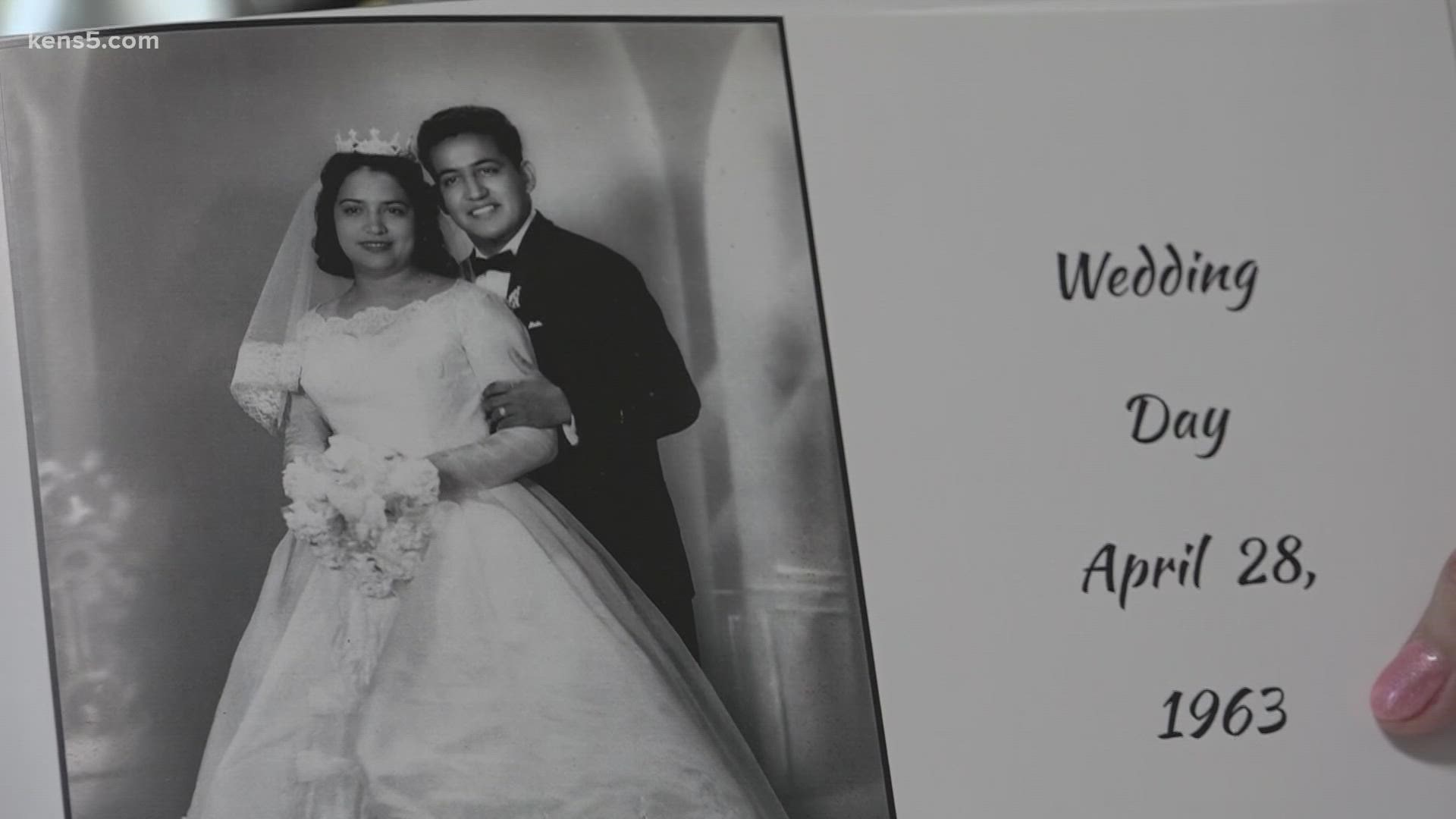SAN ANTONIO — San Antonio native Mary Lou Rodriguez is among 400,000 Texans living with Alzheimer’s Disease, a brain-debilitating disorder that’s been at the forefront of medical research for decades.
Mary Lou, 78, and her husband, Arturo, have been happily married for 58 years. Together, they've raised three children who now live in San Antonio and Austin areas.
Dementia has impacted other family members, leading to Mary Lou and Arturo becoming familiar with the challenges the disease poses not just on the patient but caregivers as well.
Mary Lou recalls five years ago the tell-tale signs that something was wrong.
“I was beginning to forget how old I was, I forgot how old my husband was, how long we had been married, and then I started forgetting my kids’ birthdays,” Mary Lou said.
Mary Lou once worked for the City of San Antonio for several years as an administrative assistant, writing proclamations that would be read by the mayor and other officials. Nowadays, she doesn't think she'd be able to complete the same type of work due to Alzheimer's.
There are days when Mary Lou’s anxiety rises and her mood changes. People repeating statements is something that’s become more common.
“Every time I hear, ‘I’ve already told you,’ it’s like a stab for me because it just further confirms that I’m getting worse,” she said.
Arturo’s self-proclaimed on the job training as a caregiver comes with the philosophy of treating Mary Lou with dignity and respect. He’s in regular contact with local organizations that help him and Mary Lou.
He admits some days are harder than others. But he’s made it his mission to ensure his wife does not feel like a burden.
“I don’t think I could have asked for a better partner than Mary Lou,” Arturo said. “I swore to myself that whatever time she has left with her cognitive functions, to make her as happy as I possibly can and take care of her as best as possible.”
The first human trial of a nasal vaccine designed to slow the progression of Alzheimer’s Disease is underway involving 16 people in Boston.
“It’s an exciting time to be in the Alzheimer’s research field,” said Gregory Sciuto, executive director of the Alzheimer’s Association of San Antonio and South Texas. “It’s significantly easier to administer a nasal vaccine than it is to do infusion therapy so that would be groundbreaking.”
Earlier this year, the FDA authorized BioGen’s controversial dementia-treating drug known as Aduhelm, which studies have indicated some clinical improvement in patients. However, cost of the drug remains a big barrier.
“It’s great to have a drug that is on the market and has been FDA approved but if people can’t get it, it’s not doing us any good,” Sciuto said. “The most important thing that we are focused on now is making sure we get effective early diagnosis so that we can intervene with families early in the process and provide care and support throughout.”
Mary Lou and Arturo have remained strong advocates when it comes to public education, surrounding Alzheimer’s Disease and dementia in general.
Mary Lou believes more education is needed for medical professionals on how to interact with dementia patients.
Until then, they’re keeping memories alive through pictures and spending time with family; living life to the fullest.
“I want it so badly that there be a cure coming quickly so that my children don’t have to go through this.”
To learn more about resources available for those impacted by Alzheimer’s click here.
The Alzheimer’s Association also has a 24-7 hotline: 1-800-272-3900.

